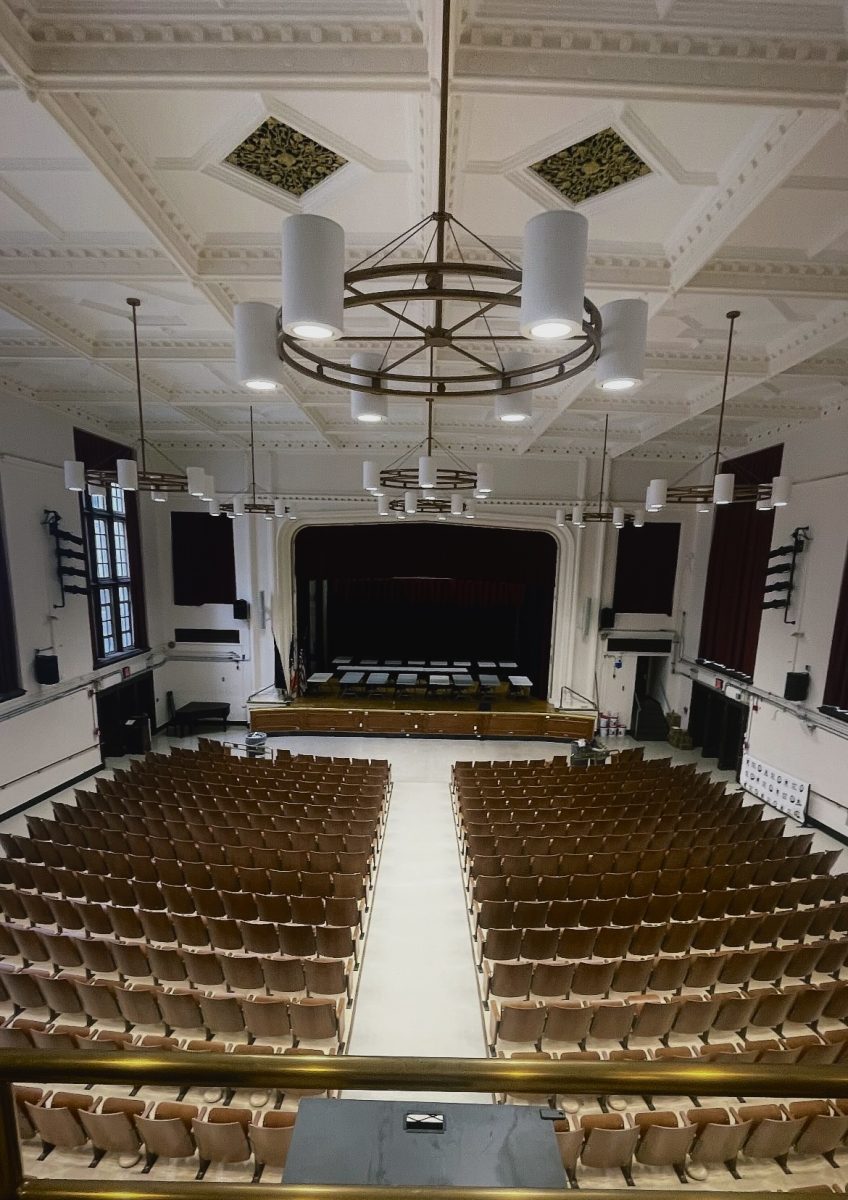
Juan Galicia
The last winter concert at Richmond Hill High School is a faint memory, too faded for current students to reminisce about. Nearly a decade has passed since the auditorium last echoed with the sound of a band or the voices of student actors.
Ms. S. Singh, a veteran theatre teacher, shares this sentiment as she has long been a champion of the performing arts at RHHS. She is known for writing and producing organic plays that reflect students’ lives and interests, rather than relying on licensed productions like Grease or Disney musicals. Her body of work has made RHHS theatre distinctly original. However, recent challenges have made it harder for students to experience the same opportunities.
Ms. Singh explained that the auditorium is now being used for storing unused smartboard and other materials that would create an obstacle for theatre students. Because of the school not having a proper ramp elsewhere, the auditorium’s ramp is the only accessible one for deliveries, leading to the build-up of equipment in the backstage area. On busier days, the front of the auditorium is overwhelmed with stacks of boxes.
The school has a rich history of arts-related programs and events that date back decades, including theatre productions, choirs, seasonal concerts & assemblies, marching bands, talent shows—considered the biggest event at the time—and even student-run radio shows, where pop icon Cyndi Lauper once took before rising to fame with her iconic hits Time After Time and Girls Just Wanna Have Fun.
And yes, you read that right—she was once a Lion.
In recent years, the decline of existing music events in the school can be attributed to the retirement of two music teachers: Paul Ray, who taught band and specialized in percussion and experimental music, and Mr. Whittle, who also led the band and chorus.
Before his early retirement, Mr. Ray was known for teaching multicultural and instrumental music, particularly the djembe drum, which originates from Africa, making Richmond Hill the only school in the district offering such a distinguishable program [percussion music]. Unfortunately, the school has yet to hire someone to fill the missing position, creating a significant gap in Richmond’s traditional music opportunities.
As of today, although the school offers a variety of music courses, the closest the school has come to replacing Mr. Ray and Mr. Whittle’s legacy is the recent addition of digital music production taught by Mr. Lafragola.
For nearly ten years, the position for a band and/or choir professor has remained unfilled. With the school still in search of someone to fill the role, Robert Schwarz, Assistant Principal of the Office of Student Progress and Academic Achievements, explained the circumstances behind the absence of dedicated art staff, such as a music instructor or a choir teacher.
“The school had to prioritize funding according to graduation requirements and making sure that we’re hitting the metrics,” he said. Mr. Schwarz also pointed out that Richmond Hill was a “renewal school, which meant that… [RHHS] was under a lot of accountability, a lot of supervision, and [it] was mandated to hit a certain benchmark.”
He added, “Richmond Hill was in the lowest 10% of all schools in the state.”
Because of this, the school had to shift funding in order to keep the school alive, leading to less budget allocated for art and music programs.
Senior Andriana Cruz wishes that the Arts were more abundant and available for students. “I feel like this school can be an outlet for students that aren’t doing well,” she said. “Having something where the students can get involved, stay off of the streets, and be in school, maybe for, like a few days a week, extra, maybe having a talent show, having a dance after school—would help.”
Once the final bell rings at 2:20 PM, students are forced to leave the building unless they are involved in a sport, club, or tutoring session.
As this issue continues to surface, Mr. Schwarz recommends students to be proactive. He suggested that it is possible to bring the arts back to the school as long as they [students] take action. By getting a survey going where the students signed up showing how many want to take music or art, it would be up to the students’ choice that will determine whether these programs will make a return.
“If you show interest, we will create it,” he assures them.